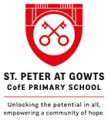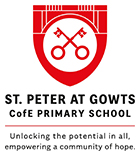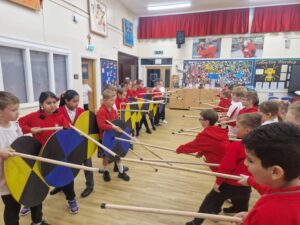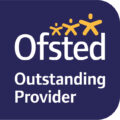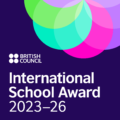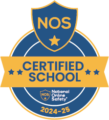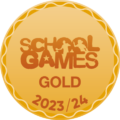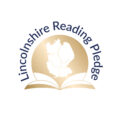History
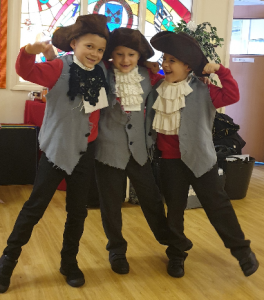 History intent statement:
History intent statement:
At St Peter at Gowts, our history curriculum is inspiring and creative unlocking potential in all. Our curriculum seeks to ensure that all pupils flourish through challenge, support and a broad and balanced curriculum rooted in shared values and consistently high expectations while striving for excellence.
St Peter’s history curriculum is fashioned through our golden threads of values, inspiration, excellence and community.
As historians, it is important that we understand the history of the world which we are a part of, especially that of Britain’s past and how historical events of the past influence life and communities today. Our ambitious history curriculum is designed to inspire pupils to find out and learn from the past, especially that within our local community. Pupils will gain a coherent understanding and knowledge of the diverse historical legacies from around the world, exploring events from the perspectives of different communities. Through our cohesively planned curriculum, children will develop their understanding of chronology learning how different periods of time interweave and how the result of key events can change the course of history. Our curriculum not only enhances and deepens children’s historical knowledge, it also aims to develop historical enquiry skills through the analysis and interpretation of different sources of information, considering their validity and what they may or may not say. Through our history curriculum, we strive to achieve excellence for all.
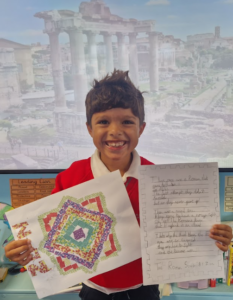
Our four key threads weave through everything we do at St Peter’s :
Values – Our history curriculum embraces our school and British values through learning about different historical events. When these events are seen through the eyes of different groups of people, children will develop their empathy and tolerance towards others and how the values of different groups of people in the past have directly influenced historical events.
Inspirational – Our inspiring history curriculum is built upon enrichment opportunities which provide opportunities for our children that they would otherwise not experience. Opportunities such as visits to Lincoln Castle and Cathedral in our local area, archaeological experiences as well as historically based workshops all enhance our children’s cultural capital and help to provide hands on activities which allow all of our children to learn and achieve.
Excellence- Our cohesively planned history curriculum and enrichment opportunities allow all children to achieve and continue their ever developing journey as a historian.
Community – Throughout our history curriculum, children will develop their understanding of communities around the world and the historical events which have impacted and influenced their lives. Children will understand how communities are everchanging based on historical events.
History implementation:
Our History curriculum is built around our substantive and disciplinary concepts developed from the National Curriculum and links to our own community and locality. Purposeful cross curricular links are planned to support and strengthen learning where appropriate. History in EYFS in underpinned by the Understanding the World objectives as set out in our personalised EYFS Curriculum. Our St Peter’s EYFS Curriculum relates to the objectives as set out in the Early Learning Goals, with clear progression from our littlest of learners (aged 2) to our end of Reception children.
- History topics begin with a pre-assessment of current knowledge and skills, from which a learning sequence is constructed.
- Learning sequences are carefully crafted to ensure that all elements from our St Peter’s history curriculum are taught and learnt – key ‘need to know’ substantive knowledge points are identified in our curriculum, alongside the disciplinary skill concepts that our children will develop to create a well-rounded historian.
- Our spiral curriculum is progressive in skills and knowledge with key vocabulary and concepts underpinning topics, which is subsequently built upon through the year and between year groups to connect prior, current and future learning.
- Key areas of learning are revisited regularly and links are made within and between topics which supports all children’s learning through spaced repetition and learning flashbacks. This formative assessment is used to inform future lessons in the learning sequence to help all learners to gather a broad and deep understanding of the topic.

- Progress pauses are planned for mid-way through a topic, where the ‘big question’ will be initially answered with children’s current knowledge and understanding. This will indicate the progress that children are making and how secure their understanding is developing. This information will be used to identify whether any areas already taught need additional coverage either through added teaching or use of flashbacks to secure knowledge.
- All learners are supported through appropriate support and stretch challenges based on assessment for learning, to ensure the needs of all learners are met.
- Enrichment opportunities are used to help support the learning of key geographical areas of the national curriculum, such as local fieldwork studies and trips to the coast to support the understanding of key physical and human features and key topographical features.
- Classroom working walls reflect the learning journey of the class, highlighting key knowledge and skill development as well as specific vocabulary. Working walls may also identify links between previously learnt topics to help make connections between key themes.
- Assessment of skills and knowledge happens on a lesson-by-lesson basis and this information is used to inform future lessons and identify ‘high flyers’ in particular strands of geography, and any children that may require additional support.
- At the end of a topic, pre-assessments are revisited for children to reflect upon and show off their new learning. The ‘big question’ will be answered once more showing the impact of children’s learning. Learning flashbacks throughout the rest of the year will allow children to revisit their learning, ensuring it remains in the long-term memory ready for further connections to be made.
- To inspire the next generation of historians, local and wider career opportunities are celebrated and explored throughout school.
History impact:
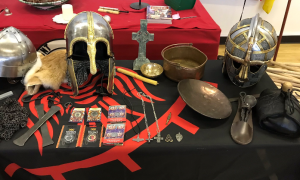
As a Year 6 historian, transitioning to secondary school, we aspire that pupils will have developed a historical mind of inquiry, critically considering what history may or may not tell them, as well as making strong connections between historical events and their influence on past and current and potentially future events.
